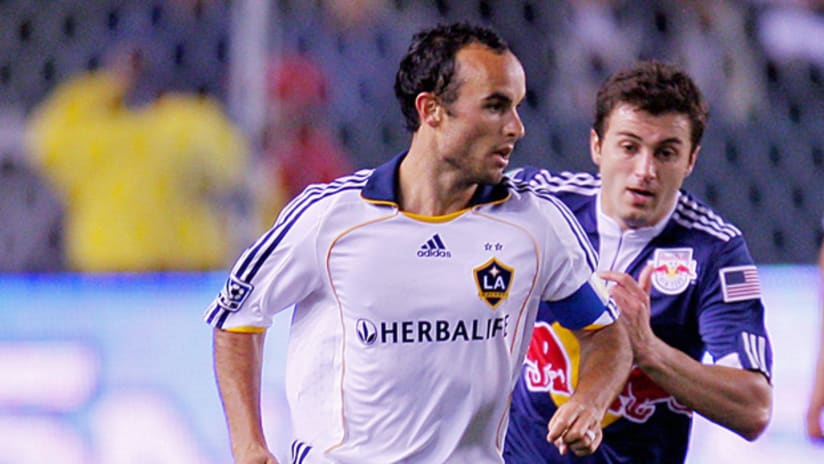After 21 months of planning and campaigning, the US Bid Committee has one more opportunity to state its case to hold the 2022 World Cup.
President Bill Clinton, LA Galaxy midfielder Landon Donovan and actor Morgan Freeman will help with the final 30-minute presentation to the FIFA Executive Committee in Zurich on Wednesday, and that will be that.
With only two days to go, committee chairman Sunil Gulati is cautiously optimistic about the US' chances of hosting the 2022 World Cup.
"We've done well," Gulati recently said, adding that he was "optimistic. But we're also realistic. It's been very competitive."
The 22-member Executive Committee—it had 24 members until two members were forced out in the wake of the recent vote-buying scandal—will make its 2018 and 2022 World Cup host decision Thursday. The US is up against Australia, Japan, Korea and Qatar.
Gulati, president of US Soccer, and bid committee executive director David Downs have visited every confederation, making their point as to why the US would be a perfect host.
"The presentation and the pitch has been received very well," Gulati said. "It's an election. It's very hard. A class election in high school, no one's saying, 'I'm definitely not going to vote for you.' And if they do, then that's the sure thing that you can count on.
"The analogy we use: It’s not a game where we get updates when someone scores or gets sent off. It's one time, Dec. 2, four o'clock [Swiss time/10 am ET] and then we'll know. Until then, we don't know."
[inline_node:308615]Gulati said the strongest parts of the bid were its 18 stadiums and a highly developed infrastructure. No new stadiums need to be built. If the US were awarded the Cup, potential tickets sales would be about 5 million, breaking the record of 3.6 million set at USA '94.
"We have 18 stadiums that are going to be in pretty good shape to start with," he said. "We've got every piece of infrastructure that is potentially needed. We've got a diverse and open country.
"We've got a very large market and the legacy, the upside of a market like the United States. The United States getting more engaged in the world's game, is something that is unique, extraordinary. Size matters."
It certainly doesn't hurt when it comes to market size. The US population is third in the world at about 310 million, behind China and India.
"One of our goals is to go from 100 million people from watching the World Cup to 200 million," Gulati said. "There aren't many countries who are bidding who can do that. The American market is huge; [310] million relatively affluent consumers, participants. ... If you see what has happened in a very important and large market over the last 15 years since the first World Cup, then I think FIFA understands."
If there are weaknesses, they are ground transportation, lack of government guarantees and some legal issues. FIFA awarded the US a medium risk rating in those areas. The Americans received a low-risk rating on the operational end.
"Because of the unique nature of our government we weren't able to sign the guarantees in the exact form that FIFA wanted," Gulati said. "They're quite comfortable with the guarantees that we've given them. They knew from the start that we have the infrastructure, highways, hotels, you name it. So I'm feeling quite good about that."
Gulati added he didn't think the geographic size of the country—four time zones—will work against the US, which hosted one of the most successful World Cups ever in 1994.
"If that was a big issue, then we would have 10 venues in the Eastern Time zone,” he said. “If FIFA wanted to narrow the scope of the tournament geographically, we can do that. We don't think that's a positive from our perspective. We want this to be a national tournament with a national footprint."
Ready to launch: MLS Matchday 2010, The new official MLS iPhone app. It's FREE! Download it here!





